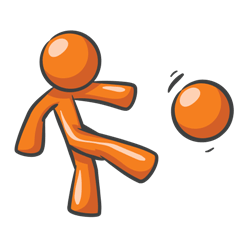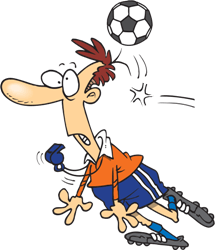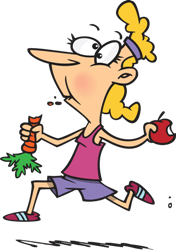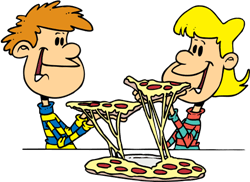Helping Verbs
(Auxiliary Verbs)
 Helping
verbs are verbs that are used with a main
verb in a sentence to express an action or state of being.
Helping
verbs are verbs that are used with a main
verb in a sentence to express an action or state of being.Click Here for Step-by-Step Rules, Stories and Exercises to Practice All English Tenses
Helping verbs are also known as auxiliary verbs.
A verb is a word that shows an action or state of being.
Examples of verbs:
- The horse jumped.
- Richard and Mike are laughing.
- Sarah likes to help
in the kitchen.
- The ball bounces high.
Helping verbs are verbs that are usually used WITH a main verb in a sentence to express an action or state.
There are two types of helping verbs: primary helping verbs and modal helping verbs.
Modal helping verbs can only be used as helping verbs. They are never used alone.

Primary helping verbs
Primary helping verbs are helping verbs that can also be used alone as the main verb in a sentence.A) The "to be" verbs
The "to be" verbs show a state of being.These are the different forms of the "to be" verbs:
- be
- being
- been
- was
- were
- am
- is
- are
- Tom will be
eating
at our house tonight.
- I have been
calling
you all night!
- I was
talking
to her.
- She is
baking
cookies.
- Fred and Lisa are walking to the park.
Examples of "be" verbs as main verbs:
- She will be
here at 5:00.
- Mike was
there.
- Tim and Sally were
at the game.
- I am at
school.
- Where are you?

B) The "do" verbs
These are the different forms of "do":- do
- does
- did
The "do" verbs have a variety of uses.
- As main verbs when
asking questions
Do you like carrots?
Did you do your chores?
- As helping verbs
to make a negative
He does not want to go today.
She did not finish her supper.
- As helping verbs
to emphasize
Tom and Bob did complete all of their homework.
Bill does love you!

C) The "have" verbs
These are the different forms of "have":- have
- has
- had
The "have" verbs are used as helping verbs to show an action that has already been completed.
- Tim had
spoken
to his mom about the trip.
- I have
called
you for hours!
- Sally has eaten all her food.

The "have" verbs can also be used alone as main verbs.
- He has
a green car.
- I have
a dog.
- Jack and Jill had pizza for supper.

Modal helping verbs
Modal helping verbs can never be used alone in a sentence.
Modal helping verbs must always be used with a main verb.
These are the different forms of modal helping verbs:- may, might, must
- should, would, could
- will, can, shall
Examples of modal helping verbs in sentences:
modal helping verb + main verb
- Correct:
Erica might walk home from school today.
- Incorrect:
Erica might home from school today.
There is no main verb (action) in this sentence.
- Correct:
I could buy you a new bike.
- Incorrect:
I could you a new bike.
There is no main verb (action) in this sentence.
- Correct:
We will learn about verbs today.
- Incorrect:
We will about verbs today.
There is no main verb (action) in this sentence.

Notes:
You do not have
to use a helping
verb in every sentence.
You MUST use a main verb in
every sentence.
These were the uses of helping verbs. Now that you know them, it is
time to practice: Illustrated Worksheet on English Helping Verbs.
Get Updates, Special Offers, and English Resources
Download your FREE GIFT (the first two chapters of
English Short Stories Book and Workbook)
as soon as you join!

By submitting your email, you consent to receiving updates and newsletters from us and to the sharing of your personal data with third parties for the purposes of sending you communications. We will not spam you. You can unsubscribe at any time. For more information, please see our privacy policy.
Return
from Helping Verbs to
Main Verbs, Auxiliary Verbs (Helping Verbs) and Compound Verbs





